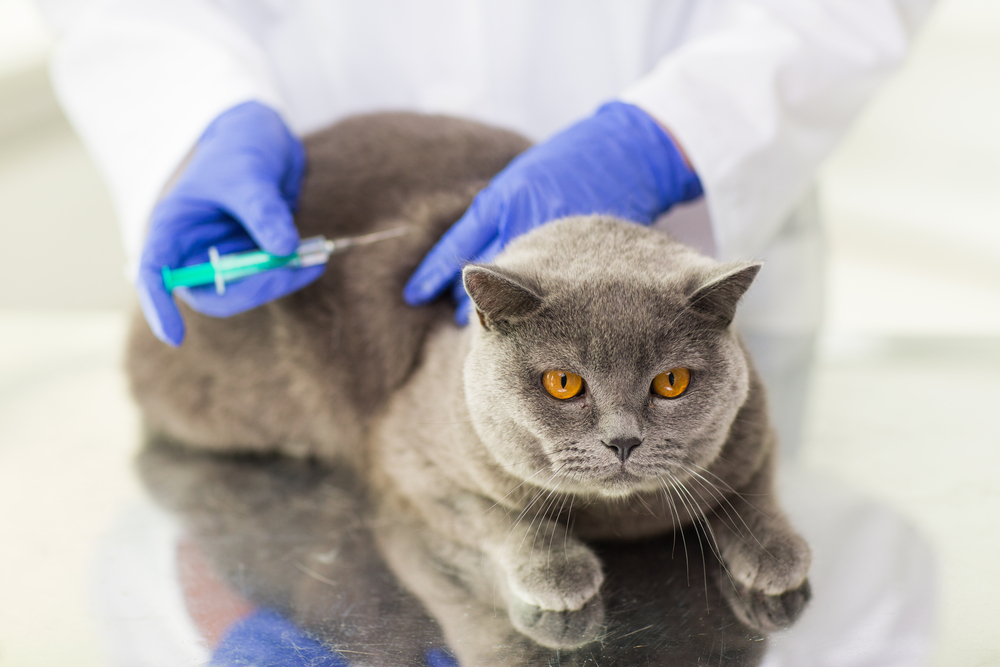
Vaccinations: Protecting Your Pet’s Health
As a pet owner, ensuring your furry friend's health and happiness is a top priority. One of the most important steps you can take in safeguarding your pet’s well-being is staying up-to-date with their vaccinations. Vaccinations play a crucial role in protecting your pet from potentially life-threatening diseases while also contributing to the overall health of the community.
Why Are Vaccinations Important?
Vaccinations help your pet’s immune system prepare to fight off diseases they may be exposed to. By introducing a harmless form of a disease-causing organism, the vaccine stimulates your pet’s immune system to recognize and combat the actual disease if they encounter it in the future. This proactive approach can save your pet from experiencing severe illness or worse.
Additionally, some vaccinations are essential for protecting public health. Diseases like rabies can be transmitted to humans, so keeping your pet vaccinated helps reduce the risk of zoonotic infections.
Core Vaccines for Dogs and Cats
Vaccination needs vary between species, but there are core vaccines that every pet should receive:
For Dogs:
• Rabies: Protects against a fatal virus that affects the brain and nervous system. Rabies vaccination is often required by law.
• Distemper, Parvovirus, and Adenovirus (DAPP): Protects against multiple highly contagious and potentially deadly diseases.
• Leptospirosis: Protects against a bacterial infection that can also affect humans.
For Cats:
• Rabies: Similar to dogs, this vaccine is critical for preventing the spread of this deadly disease.
• Feline Viral Rhinotracheitis, Calicivirus, and Panleukopenia (FVRCP): Protects against a group of serious respiratory and gastrointestinal illnesses.
• Feline Leukemia Virus (FeLV): Recommended for kittens and outdoor cats to protect against this contagious virus.
Tailoring to Your Pet’s Needs
Beyond core vaccines, some pets may require additional vaccinations based on their lifestyle, environment, and risk of exposure. These are often referred to as lifestyle vaccines.
• For Dogs: Bordetella (kennel cough) and Lyme disease vaccines may be recommended for pets that frequent boarding facilities, groomers, or spend time outdoors in tick-prone areas.
• For Cats: Vaccines for Feline Immunodeficiency Virus (FIV) or Chlamydia may be recommended for at-risk cats.
Your veterinarian will help determine the most appropriate vaccine schedule for your pet.
When Should You Vaccinate Your Pet?
Vaccination schedules typically begin when your pet is a puppy or kitten, starting as early as six to eight weeks of age. After the initial series of vaccines, booster shots are necessary to maintain immunity. Adult pets will require regular vaccinations throughout their lives, though the frequency may vary depending on the vaccine and your pet’s individual needs.
The Risks of Skipping Vaccinations
Choosing not to vaccinate your pet can leave them vulnerable to serious diseases, many of which are highly contagious and difficult to treat. Diseases like parvovirus in dogs or panleukopenia in cats can progress rapidly and often have fatal outcomes. Moreover, unvaccinated pets can spread diseases to other animals and even humans.
Partnering with Connecticut Veterinary Center for Your Pet’s Health
Vaccinating your pet is a simple yet powerful way to protect their health and ensure a long, happy life by your side. We’re dedicated to helping you keep your pet healthy and protected. We will develop a tailored vaccination plan to meet your pet’s unique needs, ensuring they receive the best possible care.
If your pet is due for vaccinations or if you have questions about their vaccination schedule, reach out to Connecticut Veterinary Center and take the next step in safeguarding your pet’s health. Visit our office in West Hartford, Connecticut, or call (860) 233-8564 to book an appointment today.







